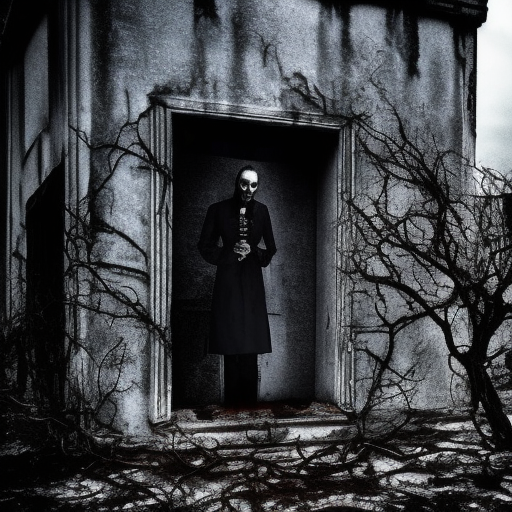
Two hundred and forty-nine years ago, a scrappy band of colonial misfits decided they’d had absolutely enough of powdered wigs and imperial bootlicking. July 4, 1776 was more than just a date on their calendar…it was a detonation. The Declaration of Independence, that feral, ink-stained manifesto of rebellion, was adopted, and the world hasn’t been the same since.
I always taught The Declaration in my composition classes, introducing it as the most punk-rock document every written in the English language, and I managed to break through to even the most jaded, cynical minds in the class. This wasn’t, after all, some polite memo to King George III. This wasn’t some bitchy, ineffective hashtag campaign. Fuck no. This was a cannonball of words fired across the Atlantic. Jefferson and his crew composed a symphony of defiance, a literary Fuck You to tyranny. “Life, Liberty, and the pursuit of Happiness” – those words roar with rebellion against royal oppression. They’re the kind of words that make you want to grab a musket, ignite a rocket, and scream “Not today, you pathetic, pusillanimous, powdered ponce.” It was the first and only No Kings Protest, with the first patriots declaring war on an actual king, not some half-assed gathering of effete old ladies in strip-parking lots whining pointlessly to each other because they are afraid of actual American exceptionalism and dominance.
And here we are, centuries later, still riding the shockwaves of that declaration. The United States of America – flawed, messy, loud, and unapologetically free. Sure, we’ve stumbled. We just spent four nightmarish years being sucker-punched by corruption, dragged through the mud by cowards, and gaslit by those who’d rather see us kneel than stand. Fuck those anti-American cretins. Most of us haven’t forgotten: our national anthem literally has explosions in it. Rockets. Bombs. The whole damn thing is a pyrotechnic ode to resilience. The country isn’t perfect, and it never will be. But perfection was never the point. The point was the Fight – the relentless, unyielding pursuit of something better. That’s what July 4th is about. It’s not just a day for hot dogs and sparklers (though, let’s be honest, those are non-negotiable). It’s a day to remember that freedom isn’t free, and it sure as hell isn’t quiet. It’s loud, messy, and sometimes downright chaotic. But it’s ours.
So, fire up the grill. Crack a beer, open the Jack. Set off a firework or twenty. And remember: this day isn’t just about celebrating what we’ve done – it’s about gearing up for what’s next. Because the pursuit of happiness? That’s a full-contact blood sport.
Happy Independence Day, America. Stay wild. Stay free. And never stop roaring.
Now onto some patriotic D.P.S. business. Fifty years to the day after the Declaration of Independence was adopted, July 4, 1826, America bore witness to what could only be described as history’s most ironic curtain call. Thomas Jefferson and John Adams – framed in the annals of American lore as two intellectual giants of the Revolution – both passed away within hours of each other. Sure, life and death are full of coincidences, but c’mon…this? The two men who helped craft the document that declared freedom to a British monarch both bowing out in its golden jubilee? That’s a plot twist even Hollywood wouldn’t dare.
It’s difficult not to see their dual exits as some sort of cosmic mic-drop. After all, they were perhaps the two most consequential of the founding fathers. Adams, the pugnacious, fiery advocate, weaponized words like a Revolutionary Rambo, his essays and speeches rallying colonists with unapologetic vigor. And then there was Jefferson, whose pen seemed to channel the muses themselves. His prose in the Declaration – the lofty, idealistic call for unalienable rights – set hearts ablaze while encapsulating the philosophical heartbeat of the Revolution. Together, they were the Lennon and McCartney of liberty (minus the questionable haircuts).
But here’s the kicker that makes their partnership even richer – they could not have been more different. Adams was blunt and quick to argue, a man who saw no point in sugarcoating his points. Jefferson, on the other hand, was measured, deliberate, and notoriously reserved. While they clashed and feuded (I’m looking at you, Election of 1800, with your spicy, scorched-earth smear campaigns), they eventually reconciled late in life, exchanging letters that mapped out their shared reflections and rivalries. It was the bromance nobody saw coming.
Then came July 4, 1826 – like a cosmic endnote to their lives and legacies. Adams, in his final moments, reportedly murmured, “Jefferson survives.” Except Jefferson didn’t. He had passed away just hours earlier at Monticello. Was this last thought a poetic tribute, or a sly dig at their lifelong rivalry? We’ll never know, but it’s wonderfully on-brand for the man.
Despite their flaws, their legacy endures. The Declaration of Independence remains not just a historical document but a bold, aspirational blueprint for justice and freedom. And on that fateful summer day in 1826, it was as if the universe pressed pause to give these architects of the American experiment their due – brilliant, flawed, and forever revolutionary.
On July 4, 1845, Henry David Thoreau packed his philosophical musings, an unreasonably high tolerance for mosquitos, and (presumably) a decent stash of snacks, and moved to a cabin near Walden Pond. It wasn’t exactly rugged wilderness – his buddy Ralph Waldo Emerson owned the land – but Thoreau wasn’t aiming for “off-the-grid mountain man.” This was an experiment, a declaration of independence from knick-knack-filled parlors, neighborly dramas, and what he called the “quiet desperation” of 19th-century life.
The result? The iconically unhinged “Walden,” part memoir, part manifesto, and entirely a literary smackdown of materialism and societal conformity. More than just rejecting cluttered closets – he was throwing shade at the very foundations of comfort culture. Why do humans labor endlessly for stuff they don’t even need? Why not build a tiny shack (in Emerson’s metaphorical backyard, if you’re lucky enough) and live deliberately? Walden asks the questions you might ponder while doom-scrolling Amazon listings at 3am.
Self-reliance is the drumbeat of the book, and Thoreau hammered on it with unrelenting confidence. He chopped wood, grew beans, and arguably did more for the public image of solitude than centuries of hermits combined. But don’t be fooled by the pastoral vibes – it wasn’t all feel-good “main-character energy” at Walden Pond. A crucial part of Thoreau’s philosophy was resisting the machine, metaphorically and literally. His critiques of conformity were a rally cry of individualism and rebellion, two concepts in sore need of renewed attention these days.
And here’s the kicker in that direction – “Walden” doesn’t sit neatly in its 19th-century time capsule. Over two centuries later, it still shouts from the bookshelves at anyone trying to KonMari their lives or ditch “The Man.” Thoreau’s treatise on minimalism, nature, and resisting societal nonsense resonates with present day freedom fighters at war with cancel culture, speech codes and pronoun abuse, moronic mask-mandates, government-mandated untested vaccines, and the rest of such anti-American bullshit. Sure, not everyone’s sprinting to build cabins in the woods, but his message of intentional living? That’s hitting home, whether you’re in a trendy city loft or your studio backdrop happens to be a perfectly manicured farm on Instagram.
Thoreau declared a personal revolution that July 4th – a one-man independence celebration complete with philosophical fireworks. His legacy endures not because he nailed the tiny-house aesthetic, but because he challenged his readers to define their lives in a way that was Revolutionary with a capital “R.”
Lastly (though certainly not leastly), on July 4, 1855, Walt Whitman took the literary equivalent of a sledgehammer to the buttoned-up cultural norms of his time and published Leaves of Grass. It was a full-throated yawp – a deeply democratic, unapologetically sensual celebration of the self, the body, and the soul.
Imagine being a Victorian prude (this won’t be hard for some of you) confronted with this book. Whitman’s verses were an unaccompanied walk straight into the underbelly of humanity’s desires and contradictions – raw, radical, and drenched in the sweat of a working man’s labor. He painted a world where the farmer, the legal immigrant, and the mechanic weren’t just background characters but leading actors in the grand theater of democracy. And his free verse? It swaggered. No formal structure, no rigid rhyme schemes – just the rhythm of Whitman’s heart beating unapologetically across the page.
Leaves of Grass didn’t just talk the talk of American independence; it strutted its way into the room, dropped the mic, and winked at the audience. Whitman’s themes of individuality and unity were inseparable. He blurred lines between bodies, classes, and even the sacred and profane – arguing that everything and everyone holds divine potential. It was a throat-punch to the suffocating buttoned-up culture of the era.
And let’s not overlook the audacity of publishing it on Independence Day. Whitman practically gift-wrapped this literary rebellion and tied it up with a star-spangled bow, shouting, “This is America!” It was the ultimate power move, a nod to a nation still grappling with its ideals and contradictions, and a promise of what it could become.
Critics were…not thrilled (no shit, right?). But over time, Leaves of Grass grew into a towering monument of American literature, shaping modern poetry and influencing everyone from Langston Hughes to Allen Ginsberg. Whitman infused his work with democracy’s messy, joyful, radical spirit. Today, we can look back and marvel at Whitman’s chutzpah. He wrote poetry that didn’t tiptoe around convention but stomped all over it with muddy boots. And in doing so, he gave us verses still capable of making hearts skip beats and reminding us – regardless of how messy, complex, or chaotic life gets – that we contain multitudes.
N.P.: “American Badass” – Kid Rock



